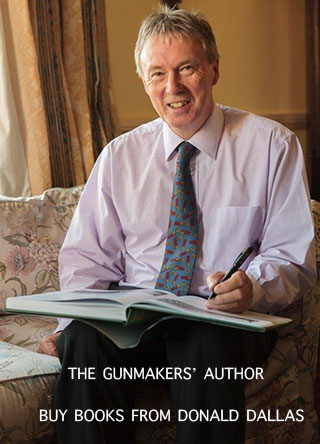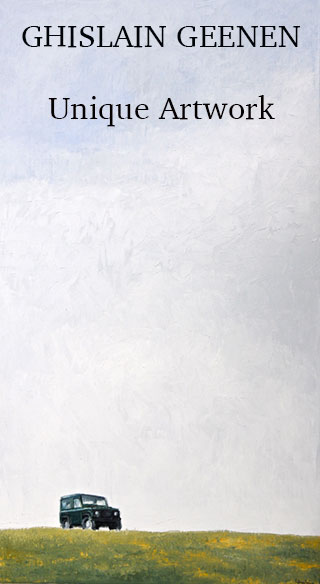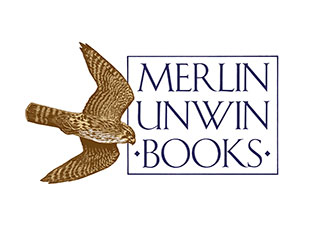We are familiar with Alexander Henry’s fine rifles, and some of us with the tragedy of the death of his eldest son James, in a shooting accident. However, many may not know the story of Henry’s later son Alexander.
Alexander Henry’s eldest son to reach adulthood, and the son to whom he gave his name, was born on 6th October 1859 in the 8 South St Andrew Street premises and would have been almost exactly one year old at the time of the tragic accidental death of James at his father’s hand.
Alexander must have been very important to his father, as the now eldest son, and from the letters I have, his father called him Alick.
Alick showed some early interest and aptitude for gun making. In 1873, Alexander Henry senior wrote to John Moore of Joseph Brazier’s in Wolverhampton:

18th Dec
Dear Sir
I intended when you was here last to have spoken to you regarding my eldest son whose mind seems more bent on working at a bench than attending school so I have resolved on sending him to learn gunmaking but do not wish him to be taught in my own workshops least he might like many others get spoiled by indulgences. I have therefore made up my mind to send him to England to serve a portion of this apprenticeship and having myself found it of great advantage to have a knowledge of lockfiling I should prefer him getting some information in that branch before going to woodwork.
Could you undertake him for a year or two and put him under a good respectable man, or if not, can you advise me of any one to whom I could safely send him. He is 14 years last October, and very healthy. I shall be glad to hear what you think of it, as I think of starting him about the beginning of the year.
I hope you are all quite well
Yours very truly
Alex Henry
John Moore Esq
Ashes
Wolverhampton
John Moore was Manager of Joseph Brazier gunlock works, 'Ashes', Great Brickkiln St, Wolverhampton, and agreed to the apprenticeship.
Later letters suggest there are issues with 17-year old Alick’s abilities with money, and with his “staying power” on the apprenticeship. To be fair, Alick had by then been away from home for over a year at a tender age.
Henry Senior wrote to Moore in Feb 1864, saying Alick was keen to come home, and asked for what Alick might owe Moore for board and keep, we can guess. He also commented that Alick was too keen on playing violin rather than studying and working.
A month later, and things are still not going well with the apprenticeship. This letter bluntly gives an omen of what was to come.
18th Feb (187)5 68
John Moore Esq
Dear Sir
I have been very much engaged in troublesome business which prevented my writing to you sooner. Referring to the cheque which I sent to Master Alex I thought I had told him to ask you to be so good as take charge of it for him as you kindly did before but I may have omitted doing so.
He cannot keep money very well yet I fear, and might be easily induced to waste it which is a bad thing to manage though I do not wish to screw him up too tight least he might break loose whenever he got a chance of doing so. I will therefore feel obliged by your being his treasurer as long as he lives with you.
I told him that I wished him to study at his leisure time all his foreman’s leftovers particularly bookkeeping and not to devote so much time to the violin as it cannot be of much use to him. He had better send me a list of all the books he has and I will supply any he may still require.
I regret to hear of your severe illness but hope you are on the fair way to health again, and with kindest regards to yourself and family
I am
Yours very truly
Alex Henry
The “troublesome business” is very likely a reference to the Wormald fraud cases, which were coming to a climax in early 1875.
In June 1884, aged 25, Alick married Charlotte Mary Scott in Edmonton, an area of Enfield in London, so it may be that Alick had found other work in the gun trade.
By 1891, they were back in Edinburgh, with Charlotte's mother-in-law Hannah under the same roof.
When Henry Senior died in 1894 Alick was left half the business, with his brother John Chave Luxmoore Henry receiving the other half.
When Henry Senior died in 1894 Alick was left half the business, with his brother John Chave Luxmoore Henry receiving the other half.
In the 1895 publication “Men of The Period – Portraits and Pen Pictures of Leading Men”, there is a full page about Alexander Henry Senior, who had only recently died, but perhaps the biographical article was already well underway when Henry died. It seems like Alick was probably asked for an update, before the article was committed to print, as the last part reads like a promotional brochure:
“Since the death of Mr. Alexander Henry, his eldest son, who bears the same name, has carried on the business with marked ability and success. Having had twenty-seven years of actual practical experience, he possesses qualifications which have made him widely and favourably known in sporting circles. He was educated at the Royal High School of Edinburgh, and while there he showed an aptitude for mechanics and foreign languages, whereby he gained several prizes. He was thereafter apprenticed to Messrs. Joseph Brazier & Sons, Gun Lock and Action Filers, The Ashes, Wolverhampton. In many respects he has followed in the footsteps of his father, to whom he has proved a worthy successor, but, at the same time, he has displayed a progressive spirit, and has shown himself an inventor of more than average resourcefulness. Mr. Alexander Henry’s works, now, and for a number of years past, located at Beaverbank, Edinburgh, are, we need hardly say, perfectly equipped, and their facilities are such as to enable him to guarantee the accuracy and faultless workmanship of all guns, rifles, &c. Unquestionably the name of Henry will long be a famous one in the annals of this important industry, and its prestige was never better maintained than at the present moment.”
Alick “couldn’t have written it better himself”.
The truth about his business was rather different. At this time his advertising was rather different from his grand words and made his business sound rather small scale.
The Scotsman Classified Ads 7th September 1895:
Ammunition of every description, carefully loaded under personal supervision. Alexander Henry, Beaverbank
By July 1896, The Scotsman Classified Ads showed a different story :
NOTICE TO DEBTORS AND CREDITORS
Alexander Henry, Gunmaker, Beaverbank, Edinburgh, having granted a TRUST DEED for behoof of his CREDITORS, in favour of JAMES CRAIG, Chartered Accountant, Edinburgh, as trustee, ALL PARTIES having CLAIMS against the said ALEXANDER HENRY are requested to lodge the same with the Subscriber within Seven Days from this date; and ALL PARTIES indebted to the said ALEXANDER HENRY are requested to make payments of their accounts to the SUBSCRIBERS within the like period.
J&RA CRAIG C.A.
27 York Place,
Edinburgh, 11th July 1896
In 1906, with a lot of financial problems, he was found guilty of a series of thefts, and was sentenced to four months in prison. It seems his early difficulties with managing money continued throughout his life.

From The Scotsman of 7th February 1906 :
Edinburgh Business Man’s Downfall
Alexander Henry, who carried on business as a gun-maker at East Register Street, Edinburgh, was brought before Sheriff Maconochie at a pleading diet of Edinburgh Sheriff Court yesterday and sentenced to four months imprisonment for a series of thefts. He admitted charges of receiving guns for repair and pledging them; receiving 25s from a gentleman in Baden Baden for golf balls, and failing to fulfil the order and appropriating the money; having in a similar manner stolen £1 from another gentleman and also having pretended to certain persons that if they sent goods to him he would pay for them and getting in this way several guns, several dozens of golf balls and 5000 cartridges.
The story told on Henry’s behalf was to the effect that he had been in business as a gun-maker for thirty-five years, but during the past two years he had been in financial difficulties. With regard to the pledged gun, accused had received it for repair, but the owner of the article declined to pay the account until the gun was sent back to him.
Accused, being short of money at the time, pawned the gun, but went back to redeem some time afterwards, only to find, however, that the police had been at the place before him. With regard to the golf balls, Henry had a patent for these, and they were manufactured by a firm in the city. He was informed by a gentleman in Glasgow that some of the balls were splitting and having consequently told the manufacturers in Edinburgh that new balls were wanted he was unable to carry out orders which he had received. Returning to the last item in the charges, the firms mentioned were those with whom Henry had dealt for a number of years, and the goods were in the most part what he had ordered for the season. It was stated by fiscal that the value of the goods was £85 and these were pledged for about £29. The Sheriff passed sentence as stated, and commented upon the case which, he said, was a very sad one; but he could not overlook the fact that the thefts were on an extensive scale, and had continued over a year. An application was made on behalf of the pawnbrokers for recovery of the money they had advanced on goods. His lordship said that, as the name of Henry was well known for many years, he did not think that people who sent goods could be blamed for their action; but, on the other hand, he did not think that pawnbrokers were in any way to blame, and in the circumstances he thought that the pawnbrokers should be granted half the amount.
Messrs Alexander Henry & Co., gun and rifle makers, 18 Frederick Street, write:-
“The name of Alexander Henry is certainly well known, both in Edinburgh and throughout the world, as the founder of this business and the inventor of the Henry Rifle barrel, which was used in the Martini Henry rifle; but we beg to say that the Alexander Henry who appeared in court yesterday is not the proprietor of this well-known business, nor has he any connection with this firm whatsoever”
Note the disclaimer at the foot of the newspaper coverage of the trial. This was followed the next day by a separate disclaimer announcement in The Scotsman of 8th February 1906:
Alexander Henry & Co
Gun and Rifle Makers
18 Frederick Street, Edinburgh
Beg to inform the public that the Alex. Henry who was sentenced on the 6th inst. is Not, and never has been, Proprietor of this business, nor has he any connection whatever with this firm.
By 1911, Alick and Charlotte Henry were living in a flat in 25 Balfour Street, Leith, with no children; his occupation listed as “gunmaker”, working "on his own account”. He was 52 or so then. Thereafter they must have moved to Clydebank, probably to find work but also possibly to escape his recent history.
On 6th September 1918, his wife Charlotte died of a brain haemorrhage at 54 Second Avenue, Radnor Park, Clydebank. Her funeral was held in Edinburgh and the cortege proceeded from Waverley Station.
She did not leave a will, but her inventory amounted to £269 9s 1d, including 2 leasehold houses in Enfield, valued at £150. When Alick came to Edinburgh to deal with her estate, very significantly he stayed at the King's Hotel in Broughton Street - not with brother-in-law Alexander Brown, nor any one of his nephews, Alexander, Charles or Tom, who were in Edinburgh at the time.
Ten months later, on 28th June 1919, he married again, aged 60, another Charlotte – Charlotte Hopegood Mathieson of 2 George Place, which was part of Leith Walk in Edinburgh at the time.
Alick died at the Clydebank address on 2nd February 1931, of arterial sclerosis and senile myocarditis. He is buried in an unmarked grave, oddly with his first wife Charlotte and mother-in-law Hannah, at Rosebank Cemetery, off Pilrig Street, Leith. The cemetery records have no record of his date of death, age, or funeral.
Alick Henry's unmarked grave in Rosebank Cemetery between the broken cross and "Proudfoot"[/caption]
His death certificate describes him as an “engine fitter”, whereas previous references e.g. the 1911 census had “gun manufacturer”. Perhaps he worked locally at Singer or John Brown's shipyard, given his experience. The certificate has his age as 74, whereas he was actually 71, and his mother’s maiden name as “Margaret Henry née Rawlinson”, whereas we know it was “Isabella Henry née Ronaldson”. This suggests significant estrangement from his family, and a lack of knowledge by his second wife of his family details.
Certainly, his addresses since 1894 suggest a downturn in his circumstances – a flat in Balfour Street, a shop in Leith Walk, a spell in prison, lodgings in Leith and a flat in Clydebank. It’s probably just as well Alexander Henry senior didn’t know about this.
The flat at 54 Second Avenue was destroyed in the Clydebank Blitz on the nights of 13-14 March 1941.
Charlotte died in a home in Hawick in December 1951.
Published by Vintage Guns Ltd on (modified )



